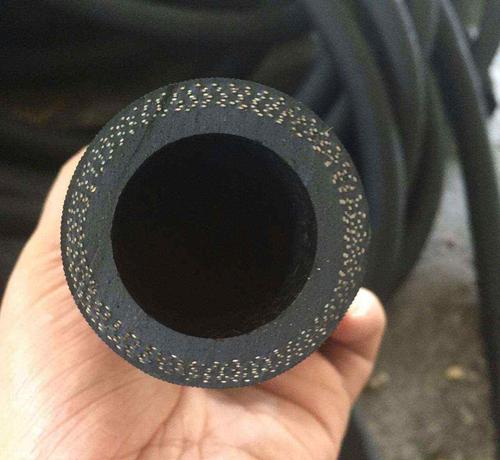Sandblasting hose The copper plated hose is specially woven with steel wire, which can withstand the working pressure 3-4 times that of the cloth clip hose. It has high pressure resistance and excellent bending resistance. The alias of sand blasting hose is the rubber hose for sand blasting, which is mainly used for pressure blasting, rust removal and hemp removal on the metal surface. In addition, it can be used for wet sand blasting and dry sand blasting in engineering construction. It is mainly used in the fields of machining, shipbuilding and spraying. Every object has its own standard. Many people want to know the standard of sandblasting hose. Today I'm going to introduce the standards and related knowledge of sandblasting hose.
Features of sandblasting hose
Inner rubber: polyurethane and butyl rubber are used as the main raw materials, and special reinforcing agent is added. The inner glue of the finished product is yellow and transparent. It has the characteristics of high wear resistance, high toughness and high pressure resistance. The wear resistance index is 2-3 times of that of ordinary sandblasting hose.
Enhancement layer
The cloth clip sandblasting hose uses high-quality rubberized cloth as the reinforcement layer, which has good flexibility and strong pressure bearing capacity;
The steel braided sandblasting hose is made of special steel wire braided for copper plated hose, which can withstand the working pressure of 3-4 times that of the cloth clip hose. It has high pressure resistance and excellent bending resistance.

Standard for sand blasting hose
one Sandblasting hose Technical standards of
Only standard products can reassure users. Next, let's talk about its technical standards.
In terms of operating temperature, the temperature of sandblasting hose is generally - 20-70 ℃.
In terms of material and structure, sandblasting hose should have the following composition. One needs an inner rubber layer. 2、 There is a reinforcing layer, which is composed of natural or synthetic materials paved by appropriate methods, and it is mostly made of laminated cloth method and cord winding method. Third, it has an outer glue layer.
In terms of hydraulics, the standards are as follows. The working pressure of sand blasting hose is 0.63MPa. When it carries out the hydraulic test work under twice the working pressure, no water seepage, local bulge, expansion and other abnormal phenomena are allowed.
The pressure of its anti-static hose should be maintained for one minute, but the length change should not exceed 0.8% of the upper and lower, the outer diameter change should not exceed 10% of the upper and lower, and for each meter, the torsion should not exceed 60&ORDM. Finally, the bursting pressure of sand blasting hose shall not be less than 4 times of the working pressure.



